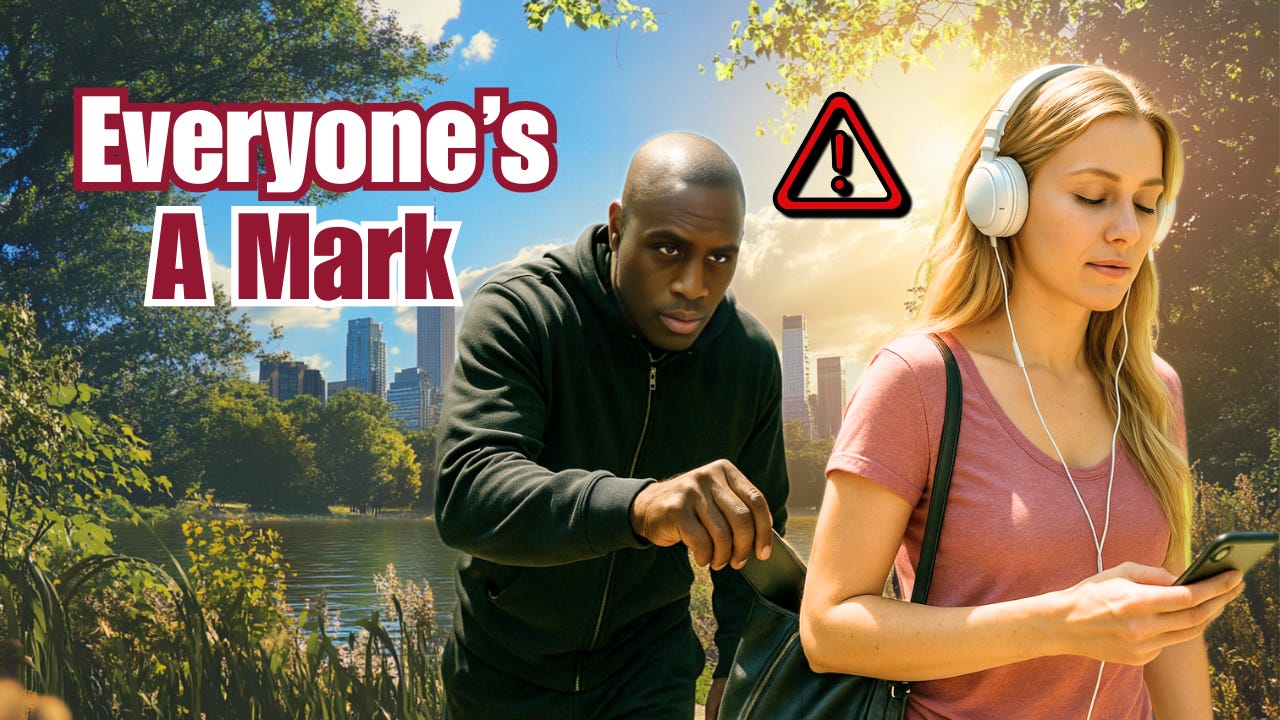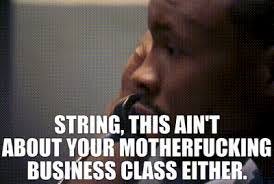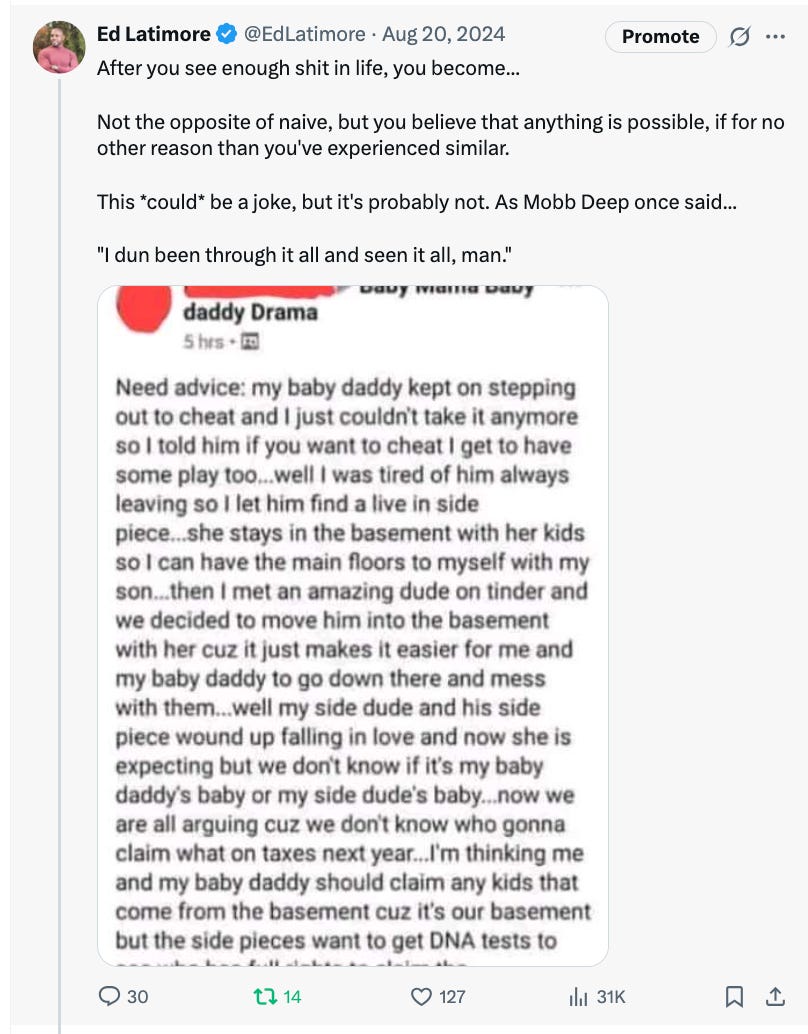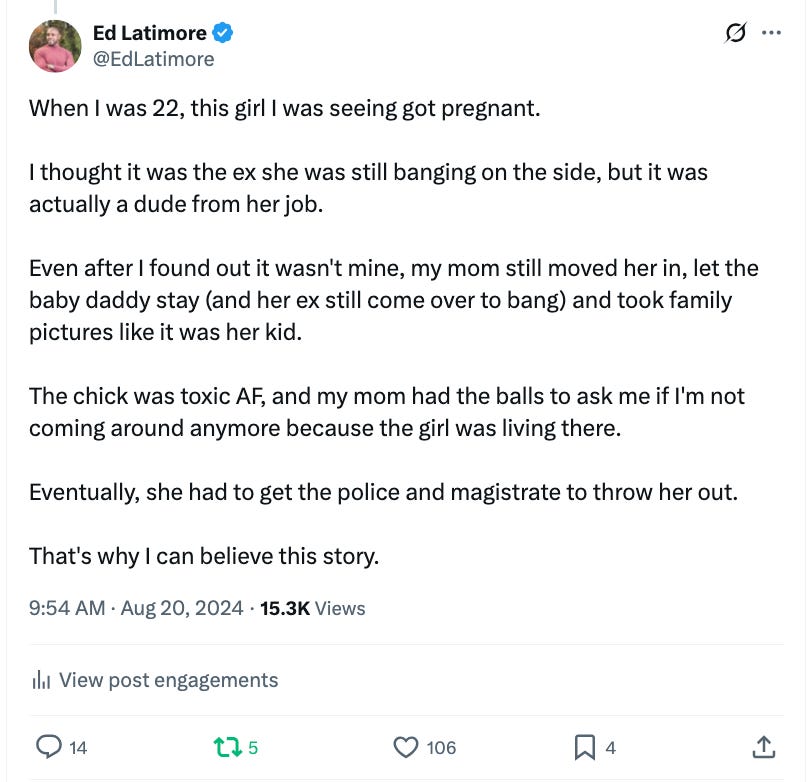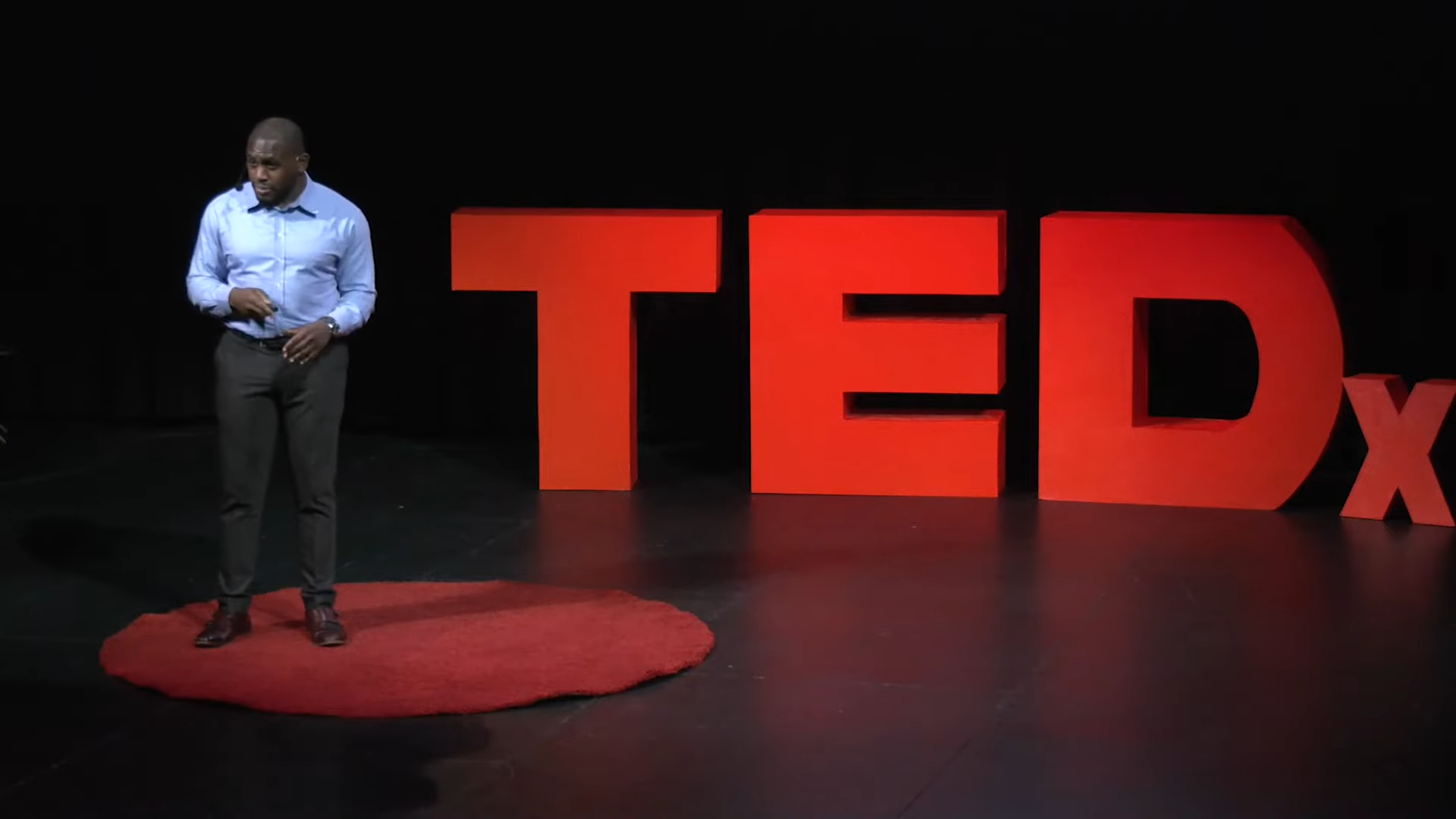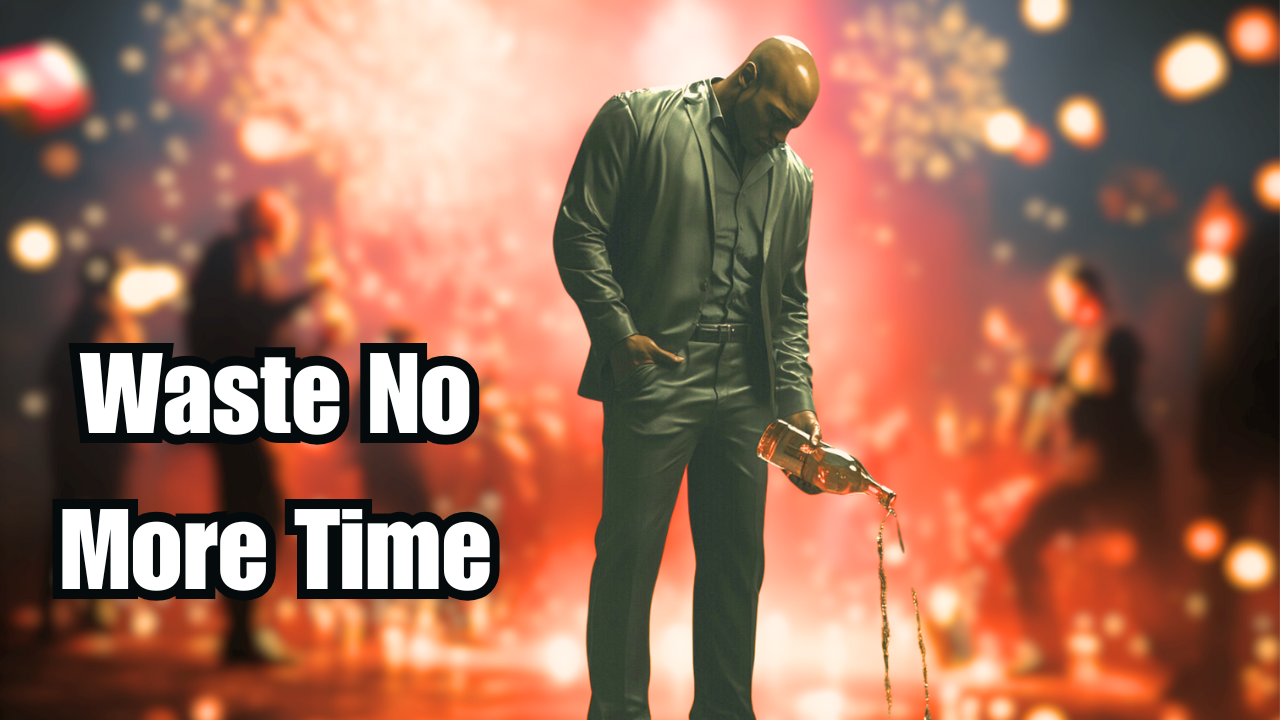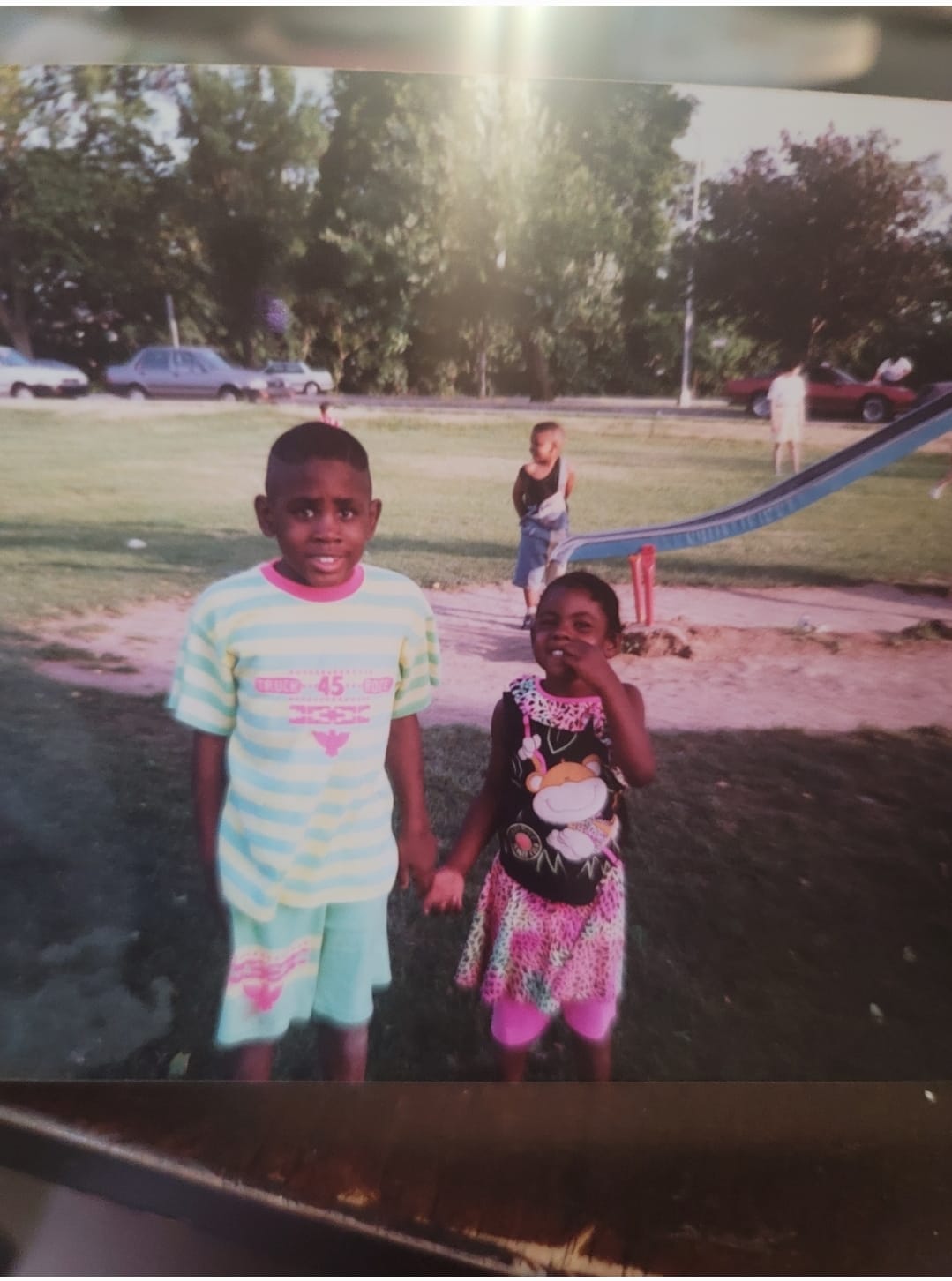Being street smart is held up as the holy grail of intelligence and people skills. These days, it’s become trendy to trash book smarts and glorify street smarts—as if one makes you soft and the other makes you unstoppable. But almost nobody defines what street smarts actually are, how you really get them, or whether they’re actually worth it.
That’s what I’m here to break down [You can watch it below if you want to]
In this essay, I’ll answer three questions:
- What does it mean to be street smart?
- How do you become street smart?
- And—most importantly—is it worth the price?
Spoiler: it’s not. At least, not for the reasons you might think.
Now, I’m not speaking from theory. I didn’t study this in a university classroom. I learned it in real time, growing up in an environment where survival was the only curriculum. I did just enough differently to avoid the usual outcomes for people from where I’m from—dead, in jail, or stuck in the same cycle for life.
But make no mistake: you don’t get out without learning to move. And that understanding? That’s street smarts. It’s a way of reading situations and people when the rules break down—or never existed in the first place.
Growing up, the dangers were immediate and physical. You had to know whether the guy across the street was reaching for his waistband or just adjusting his pants. You learned to recognize danger before it popped off—not because someone told you, but because your life depended on it.
Now I live in a world where the threats wear suits and smile for the camera.
The dude pushing an MLM in your DMs.
The dropshipper who’ll “build your store for you.”
The fake alpha guru selling confidence by the bundle.
The pig butchers who fatten you up with love—or crypto—until you send them your life savings.
And guess what? Street smarts still work here. Different battlefield, same war.
There’s an old saying: “Once bitten, twice shy.” That’s the real origin story of street smarts. You only get them after the bite. After the betrayal. After you trusted the wrong person and paid the price
Because the streets—and I’m not just talking about neighborhoods, but any place where rules break down—don’t teach with lectures. They teach with consequences.
What you deal with in the hood is a kind of organized anarchy. It’s not that laws don’t exist—it’s that people don’t respect them. Police don’t stop crime. They just clean up afterward. And the community’s relationship with authority is so broken that you’re expected to handle your problems alone.
If something goes down, you can’t call for help. You have to handle it yourself. But here’s the twist: if you act too bold, too fast, too emotionally—you make yourself a bigger target. So you learn.
Avoid the conflict—but don’t look scared.
Be invisible—but don’t look weak.
Move quiet—but never sloppy.
That balancing act? That’s street smarts.
It’s wild how quickly the mask of civility drops when people chase sex or money. As Meek Mill said, “When certain niggas get to starvin’, know that gun gon’ shine.”
You might’ve heard the saying, “All’s fair in love and war.”
Now consider this: for a lot of people, self-interest is the highest form of love—and they’ll go to war to protect it. Even if it means hurting people who aren’t in the game.
That’s the world you’re navigating. And to survive it, you need more than morals. You need street smarts. So what are they, really?
To call someone “street smart” is to say they’ve been up close and personal with human nature—especially the ugly side. They understand how people act when no one’s watching. They can spot the bluff, the hustle, the betrayal before it lands. And they know how to use that information to protect themselves—or take advantage of it, if they want to.
When most people picture street smarts, they think of a hustler: a drug dealer, a stick-up kid, someone ducking the cops while making moves. But that’s just one form. You’ll find street smarts in cops, CEOs, pastors—anyone who’s spent time dealing with desperation, deceit, and survival.
The common thread?
Constant exposure to high-stakes human behavior.
The ability to adapt without losing your footing.
And the scars to prove it.
Book smarts might help you predict what should happen.
Street smarts help you survive what actually does.
There’s a perfect moment in The Wire that captures this tension. Stringer Bell—smart, ambitious, business-minded—is talking about market cycles like he’s running a corporation. Avon Barksdale cuts him off and says:
“String, this ain’t about your mothafuckin’ business class either. It ain’t that part of it. It’s that other thing. The street. It’s the street, always.”
That line is the heartbeat of this whole idea. When there are no systems to protect you, when the rules fall away, all that’s left is raw human nature. And you either learn how to navigate it, or you get clapped
.The street doesn’t teach with textbooks. It teaches with tests—tests where failure has real-world consequences. And unlike school, there are no makeup exams. No tutors. No grace period. Just the lesson, the test, and whether or not you’re still standing when it’s over.
I can teach you how to solve an equation or analyze a paragraph. But I can’t teach you how to keep your head on a swivel when you walk into a room. I can’t teach you how to smile while someone tries to scam you—just long enough for them to show their hand. I can try, but at the end of the day, the only way you learn the stove is hot… is by getting burned.
That’s how I learned. And now, instead of dodging fists and fake friends, I’m dodging finesse moves in suits and DMs.
That’s what makes street smarts so powerful—they evolve. You go from worrying about who’s gonna press you on the corner, to wondering who’s gonna press you into a “business opportunity” that drains your savings and self-worth.
And the questions stay the same:
What’s this person really after?
What aren’t they saying?
Who benefits if I play along?
That mindset saved me from a lot of modern-day predators. But to sharpen it even more, I went back to something I hadn’t touched in years—a book that breaks down how people give themselves away, even when their words are saying all the right things.
This brings us to the sponsor of this essay, Shortform
.If you’ve ever wished books came with cheat codes—Shortform is it. They’ve got detailed guides and summaries for thousands of nonfiction books across every genre you can think of: psychology, self-development, business, history, philosophy—you name it. But these aren’t just surface-level recaps. Each guide breaks down key ideas, adds smart context, and even connects the dots between different books.
For this video, I used Shortform to revisit What Everybody Is Saying by Joe Navarro, the former FBI agent who explains how body language gives people away. I wanted to explore how subtle cues—like posture, eye contact, or how someone carries themselves—can make a person look naïve or even like a target. If you’re trying to be more aware and less easy to fool, this book’s a goldmine—and Shortform made it easy to pull the insights fast.
You can try it free and get 20% off the annual plan here. Thanks to Shortform for sponsoring the essay
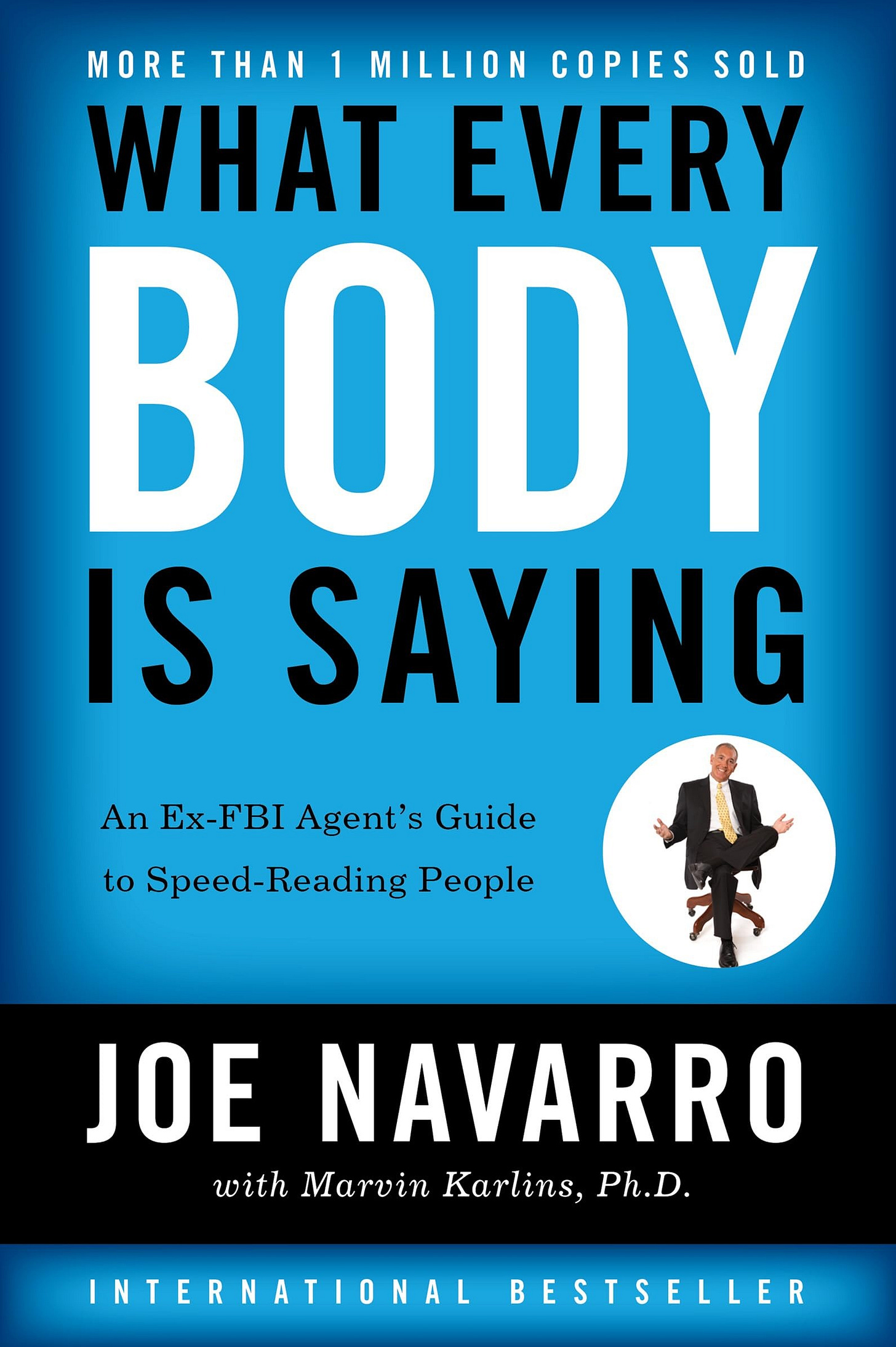 One of the things Navarro absolutely nails is this: your body speaks louder than your mouth ever will. You could be the hardest, buffest-looking dude in the room—but if your body says “I’ve never seen danger,” you’ll get treated like a mark.
One of the things Navarro absolutely nails is this: your body speaks louder than your mouth ever will. You could be the hardest, buffest-looking dude in the room—but if your body says “I’ve never seen danger,” you’ll get treated like a mark.
And that’s what most people don’t understand. You don’t have to say something dumb to get played. You just have to move like someone who hasn’t been burned yet. That’s all it takes.
That’s why predators—whether it’s scammers, con artists, or straight-up criminals—can walk into a room and almost instantly pick out who they’re gonna target.
In fact, there’s research to back this up.
In 1981, a study out of New York filmed random people walking down the street. Then they showed the footage to a group of violent offenders—guys in prison for robbery and assault—and asked them, “Who would you go after?”
They all picked the same people, not based on size or age, but on movement, posture, gait, hesitation, and awareness.
That study confirmed what the streets already knew: predators don’t just pick random victims. They pick easy ones. And “easy” has nothing to do with how smart you are on paper. It’s about how you carry yourself. How alert you are. How naive you look.
And in 2025, when everyone’s glued to their phones and half-aware at best?
There are more easy marks than ever.
Now here’s the twist: sometimes the best move is to look like a mark—at least long enough to get someone to reveal their hand. That’s an advanced level of street smarts: playing dumb so the other person gets comfortable showing how full of shit they are.
But that only works if you’re not actually dumb. You have to be alert beneath the surface. You have to see the play before it’s made. And that comes from experience, betrayal, and trial by fire.
Everyone knows street smarts help you avoid getting played. What fewer people talk about is what they cost you on the inside. Because the truth is, if you’ve got real street smarts, it’s probably because something—or someone—hurt you bad enough to kill off your naivety.
I didn’t grow up learning to trust people. I grew up learning how to read the room to avoid getting hit. My mom was abusive. My dad wasn’t around. And I figured out early that no one was coming to save me. I had to know when she’d been drinking. I had to sense the shift in her mood because if I missed the signs, I paid for it.
That kind of environment wires your brain differently.
You don’t learn to relax. You learn to scan.
You don’t ask if someone’s a threat—you assume they are until proven otherwise.
You learn to listen between the lines. Watch body language. Track inconsistencies.
Not because it’s fun. Not because it’s interesting.
But because it’s necessary.
Psychologists call this hypervigilance—a state of constant alertness, even when there’s no clear danger. Studies show that kids who grow up in homes with chronic stress or abuse often have an overactive amygdala—the part of your brain that controls your fear response.
Your nervous system becomes like a smoke alarm that never turns off. You walk through the world with your radar always on. And the messed-up part is that it actually works.
You pick up on things other people miss.
The tension in someone’s shoulders before they snap.
The weird pause in their voice before a lie.
The subtle change in their story that exposes the game.
And at first, it feels like a gift. You feel sharp, protected, and untouchable.
But over time, it becomes exhausting. Because when you’re always reading between the lines, you stop hearing what’s actually being said. When you’re always looking for the angle, you can’t just be with someone.
You stop trusting—not just strangers, but the people closest to you.
I spent the first two years of my relationship with my wife thinking,
“Either she’s the best actress in the world…
Or I’m dead and this is heaven.”
That’s how deep it ran. That’s how long it took for me to even consider the idea that someone might love me without an agenda. And I’m not the only one.
I know people who can sniff out a scam from a mile away…but they haven’t let anyone get close to them in over a decade. They’re sharp. But they’re also alone because being too street smart doesn’t just make you skeptical. It makes you cold.
You build walls so high that even the good people can’t get in.
You know how to be charming, but you don’t know how to be open.
You know how to play nice, but you’re always calculating.
That’s not living. That’s surviving.
It’s easy to become what you had to be to stay safe—but hard to become what you need to be to stay sane. That’s what they don’t tell you about street smarts.
They save you, yes, but they also change you. If you’re not careful, they harden you into someone who can’t accept love, peace, or even kindness—because you’re always waiting for the catch.
That’s when the line gets blurry. Where do your instincts end… and your trauma begin?
Every time I see a crazy Reddit post where someone gets betrayed by a spouse, scammed by a fake business partner, or left hanging by family, I see people in the comments saying:
“That can’t be real.”
“No one’s that dumb.”
“No one would actually fall for that.”
But I don’t think that at all. I just think: “You haven’t seen enough.”
Because once you’ve seen how cruel people can be when the stakes are high—or when they think they can get away with it—you stop being surprised by anything.
You stop saying, “No way.”
And you start saying, “Wouldn’t put it past them.”
And that’s the thing about street smarts—You don’t gain them from watching the world. You gain them by getting betrayed by it. By seeing what people are really capable of when no one’s looking—and when they think you can’t fight back.
But here’s the danger:
If you stare at that darkness long enough, it starts staring back at you.
There’s a quote I think about often.
It’s from Friedrich Nietzsche. You’ve probably heard it before:
“He who fights with monsters should be careful lest he thereby become a monster. And if you gaze long enough into the abyss, the abyss gazes also into you.”
That’s what being too street smart can do.
You stare into the dark parts of people long enough, you start becoming what you had to be to protect yourself. Cold. Suspicious. Ready for betrayal before it even happens.
And yeah, that might keep you safe.
But it also keeps you cut off.
You stop seeing people—you only see potential threats.
You stop having real relationships—you just run background checks with a smile.
You stop hearing what someone says—you just dissect their motives, like a detective, not a friend.
At first, it feels like clarity. You tell yourself: “I see the truth. I’m not getting fooled.”
But eventually, it turns into something darker: “I don’t believe anyone.”
That’s the abyss. And if you stare into it long enough, you don’t just see it—you become it.
Here’s where it gets tricky. People will gaslight you, manipulate you, hurt you—and then try to make you feel crazy for reacting. So naturally, your defenses go up. And they should. But when you start to assume everyone’s lying, everyone’s selfish, everyone’s out to get over… that’s not self-protection anymore. That’s a prison.
And worst of all? You might not even know it’s happening.
Because the world rewards people who don’t get fooled.
Nobody wants to be the guy who fell for the Ponzi scheme.
Nobody wants to be the woman who sent $200k to a scammer she never met.
Nobody wants to admit: “Yeah, I trusted the wrong person.”
So we overcorrect. We become guarded, hard, skeptical to the point of isolation. We call it “just being smart,” but what it really is… is fear.
And I get it. I lived it.
There were years where I thought everyone was running a game.
If someone showed me kindness, I wondered what they wanted.
If someone shared something personal, I assumed it was bait to test my loyalty.
I didn’t just question people—I questioned their reasons for breathing in my direction.
And when you live like that long enough, you start gaslighting yourself.
You stop trusting your gut, not because it’s wrong—but because it won’t shut up.
It’s always scanning, always doubting, always preparing for an ambush that might never come.
It’s exhausting and it’s lonely. Eventually, people will stop trying to get close.
Not because they’re hiding something, but because you look like you’re hiding behind something.
You become so busy spotting manipulation that you miss connection. You’re so afraid of getting played that you never get loved. That’s the real price of street smarts nobody talks about.
They make you harder to fool, but also harder to reach. Harder to trust. Harder to be around.
You don’t have to be from the streets to fall into this trap. All it takes is getting burned one too many times—By a parent. A friend. A partner. A mentor.
If you’ve been betrayed by someone you should have been able to trust, you start recalibrating everything. And once that switch flips, you don’t go back to who you were. You just try to manage who you’ve become.
But you can manage it. You can redirect it.
You can learn how to be street smart without becoming cynical. You can stay sharp without getting jaded. You can be aware without assuming the worst about everyone who steps into your life. But that takes discipline and a little bit of grace—for other people, and for yourself.
You’ve made mistakes and misjudged people. You’ve probably hurt people you didn’t mean to, just like you’ve been hurt by people who didn’t care. That doesn’t mean you throw your guard down completely. It just means you stop assuming that every connection is a setup.
Not everyone is out to get you. Some people do mean well. Some people are worth the risk. And if you don’t leave room for that possibility. You’ll never have a real relationship, feel peace, or be fully live. You’ll just survive with style.
What are street smarts, really?
They’re not just instincts or wisdom.—they’re scars. They’re what you get after life cuts you open and you manage to stop the bleeding. They’re forged in betrayal, violence, manipulation, and hard lessons—lessons you only survive if you’re lucky or fast.
Street smarts aren’t something you’re taught. They’re something you earn the hard way. They’re what you pick up after getting scammed, betrayed, abandoned, or blindsided—then figuring out how not to let it happen again.
They let you see through the BS, keep you from falling for pretty lies, and help you navigate a world that doesn’t care if you drown in it. Those skills can save your life, but don’t get it twisted.
Street smarts don’t make you invincible. They just make you harder to kill—mentally, emotionally, and financially, but if you’re not careful, they also make you harder to reach and love. Real street smarts don’t just sharpen your mind. They harden your heart.
They make you sharper, but colder. Wiser, but more withdrawn. Alert, but always on edge. And if you don’t find a way to process what gave you those street smarts in the first place, you’ll live the rest of your life in a guarded crouch—always prepared, but never at peace.
So let me say something to anyone reading this who’s already on that path. If you’ve been burned, if you’ve lost your innocence, if you’ve had to get street smart just to survive:
Don’t lose yourself in the process.
Yes—stay aware, sharp, and dangerous, but don’t let the fire that forged you burn away your ability to feel, trust, and connect. Wisdom isn’t just knowing how to survive the streets. It’s knowing when to lower your guard, who deserves your trust—and giving it, slowly, when they do. It’s being tough when you have to be, and soft when you choose to be.
That balance? That’s what keeps you human. The world is full of people who will take advantage of you. But it’s also full of people who will love you, help you, support you—if you let them.
So protect yourself, but don’t close yourself off so tight that nothing good ever gets in.

